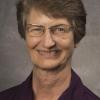
(Pixabay/Daniel Reche)
What do Kenny Rogers, giving birth, and hospice have in common?
Kenny Rogers gave me a simple mantra for personal decisions, in his 1978 song "The Gambler": "You've got to know when to hold 'em. …"
Then there was a birthday party. The celebrant shared that — as the sixth of eight children — she was told the night her mother went into labor her parents were playing poker with friends. They played through the night, and Barb was born "with an ace in my mouth,"* she laughed. Playing poker energized her mom for that birth.
How do women get through labor pains? My sister would buy an Alfred Hitchcock novel to help her get through labor. And all her six children are readers!
The sacred moments of giving birth are challenging and painful.
Birth, death, letting go, weighing the odds, holding on to hope as children make poor choices, we have to leave a family home, a career we've enjoyed, choose retirement; gamble whether this is the time to "fold" and "leave the table"!
Birthing takes many forms.
Choosing to leave a group I loved and move into an assisted living facility felt like a little death and rebirth, but I gambled on it — since I was in relatively good health I wanted to move while I could share life with my new community. When I arrived on Jan. 25, 2022, I walked with difficulty, had little desire to engage with others, and had little energy. I found the adjustments both challenging and life-giving. I realized what a relief it was to clean out my bedroom and office rather than expect others to do it for me. I was continuing a journey where a new adventure was waiting to unfold.
Little did I suspect that just five months later I would make a choice for hospice.
Suddenly severe asthma, congestive heart failure, and atrial fibrillation sent me to the hospital. This had happened before and I was familiar with the routine; good nurses, aides and doctors changed breathing and heart meds, gave numerous tests, IV drips, oxygen. …
But in desperation as one more test was mandated and more meds were added to an already overloaded digestive system, I had an idea.
Would I be eligible to enter hospice when I got seriously ill, rather than continue this regimen? The thought both scared me and provided a sense of curiosity. … Why not check it out?
I had three advantages as I sought information:
- One of our sisters is a hospice chaplain with five years of experience;
- I accompanied my sister who was in hospice;
- I had organic preventative health care for 20 years with organic therapies like chiropractic, massage, exercise, fewer meds and better diet.
When I discussed my desire for hospice with my congregation coordinator, she encouraged me to follow my intuition.
I learned that my primary care physician had to authorize my transfer to hospice care. To qualify for hospice, a person must have a prognosis of life-limiting illness (six months or less) and want comfort care rather than a cure for any terminal or end stage illness — cancer; Alzheimer's or dementia; stroke or coma; or renal, pulmonary, liver, or heart disease.
Often the doctor helps the patient decide which hospice to use, and sends the referral to that hospice. The hospice company accepting the patient applies for Medicare, Medicaid or private insurance plans to cover the cost.
My primary care physician agreed with my choice.
Advertisement
After Medicare certified my hospice status, several things changed. When a patient is accepted into a hospice program, the primary care physician may choose to continue to follow the patient; otherwise, the medical director of the hospice becomes the primary care doctor. The patient no longer sees specialists or visits their primary care doctor.
A patient may see the eye doctor or go to the dentist, but these expenditures are not covered by hospice. And the patient will no longer be hospitalized unless the primary care doctor authorizes such treatment in extraordinary circumstances. For example, if a patient falls and needs sutures to close a wound, they are taken to the emergency room for that treatment only.
This has been my experience for the past nine months.
I discussed my current meds with a hospice nurse and the hospice doctor. Before that, I'd begun having digestive problems, trembling of hands, restless leg syndrome, hand and leg cramps, and dizziness. The three of us decided which meds might be eliminated or adjusted. Being part of these conversations felt like I had some control over my care. This relieved anxiety I didn't even realize was there.
Within a matter of days, I noticed the difference. I was sleeping better, had more energy, and improved appetite. With fewer doctor's appointments and facing death with less anxiety, I felt lighter. Dreams about loved ones who have died gave me a sense of homecoming which I longed for. In one dream Sr. Jackie Merz of the School Sisters of Notre Dame was laughing with Elizabeth Taylor, and I awoke laughing too!
Supporting my wellness, a massage therapist gifted in energy work visited me twice a month as needed. Once again, I felt a freeing relationship to my body, as I listened to what my body was saying and made choices accordingly. As weeks passed into months, I felt well, realizing I'd come home to myself.
Throughout my experience I met members of the hospice team — a chaplain (a former Catholic priest, now an interdenominational minister), a doula to "midwife" my birth into new life when death was near, and several others who offered various options when needed.
Throughout the transition from traditional medical care to hospice, the staff at my assisted living facility and my community coordinators shared information and supported my decisions. This was beneficial for all parties as communication flowed from one system to another. I decided to share my decision for hospice with a few friends and family, but did not share it with my local community, hoping to live a normal life and avoid a lot of "fuss."
One event stands out. One night I awoke in a panic, unable to breathe, sweating profusely, and confused. Is this what death is like? After the staff helped me calm down and my blood pressure returned to normal, my nurse said that the hospice nurse had left meds for pain and anxiety if I needed them. I declined but felt less anxiety just knowing they were available. Another time, after a severe breathing episode, with my permission, I received oxygen and a hospital bed.
I continuously feel this grace of freedom and being loved and cared for not only by my community, but by those who have passed into another reality — which seems so much closer to me than ever before.
Here's what I learned:
- If you feel called to explore a more organic option to end-of-life issues, investigate hospice near you. I found Alternative Hospice on the internet, and later learned they are a small community of caregivers who serve only three areas near St. Louis.
- Trust your intuition and consider discussing the option for hospice with your primary care physician. Not all illnesses allow entry into hospice via Medicare coverage.
- Share with a few trusted friends what you're thinking and feeling.
As you may have guessed, on Jan. 14, 2023, after nine months in hospice, I was "decertified" because of my improved health. Several nurses had visited me in the last month asking about health, my return to a more active lifestyle, and the like.
At 83, I'm still driving, take care of my meds, and follow the regular routine where I live, including three exercise classes a week. I walk, have energy, and a real zest for life.
I have returned to my former primary care physician, to qualify for Medicare/Medicaid, as I did before hospice.
These nine months have shifted my perspective on end-of-life choices. My sister, too, was decertified after nine months, and has gone on to live five years in an assisted living facility.
I hope that when death comes closer, I can return to the same Alternative Hospice that brought me a deep awareness of wellness.
*This story has been updated to replace an incorrect word in a quote.







